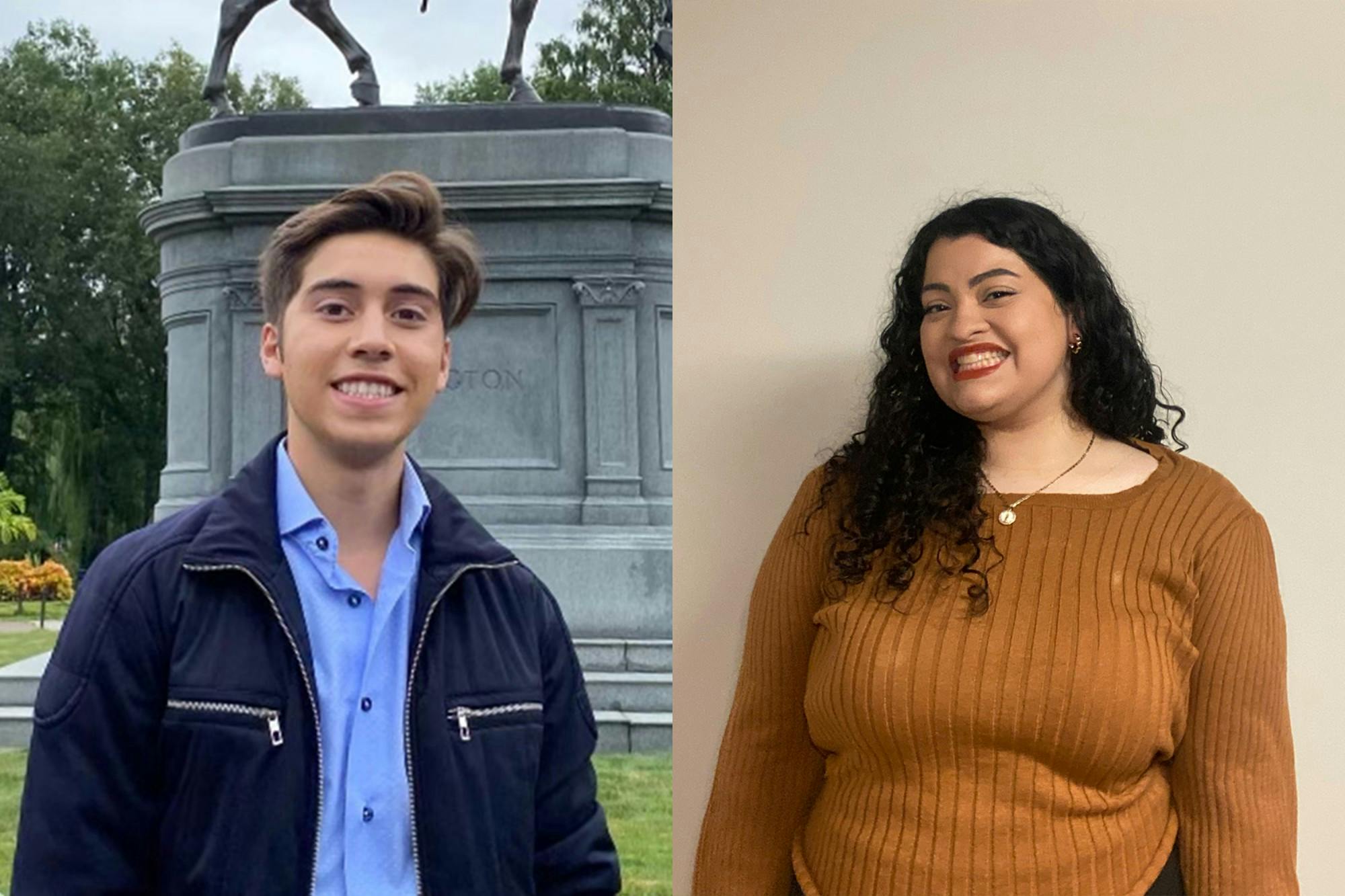On Jan. 31, Jackelinne Claros Benitez ’24 and Nacho Gutierrez ’25 were named as John Robert Lewis Scholars for the upcoming academic year. The fellowship — named after the late civil rights activist from Georgia — is run by the Faith and Politics Institute based out of Washington, D.C. According to the Faith and Politics Institute, Gutierrez and Claros Benitez are part of a group of eight undergraduate students in the U.S. who will participate in programming, which includes talks with social justice leaders, trips to Washington, D.C. and a culminating oral history project.
Additionally, in 2025, Gutierrez and Claros Benitez will take part in the FPI’s annual Congressional Civil Rights Pilgrimage to Alabama, in which members of Congress will be guided through a tour of the state that follows Martin Luther King Junior’s historical march from Selma to Montgomery.
Gutierrez said that for his oral history project research, he is focusing on issues of immigration and border policy. He added that he will draw on his experiences growing up in a rural town on the Mexican side of the Arizona-Mexican frontier where the border wall stood prominently nearby.
“The presence of the border and immigration policy has surrounded me since I was a kid,” Gutierrez said.
Gutierrez said that “the border is a region at the periphery” in terms of both policy and public understanding. He added that his interest in the border as it relates to social justice is closely tied to cultural fluidity in the region.
“Once you get on the ground, many of these communities interact with each other — people in the U.S. come to Mexico to buy cheaper medicine, people in Mexico do groceries in the U.S.,” Gutierrez said. “It's more porous — more fluid.”
Gutierrez said that the government and citizens need to have a clearer understanding of the border region immigration and the border in order to create a complex and humane policy.
In her oral history project, Claros Benitez said she is using her personal experience as a “parentified” child as a source of inspiration. “Parentification” refers to the expectation of children to provide practical or emotional support to their families, which can often occur in immigrant families like hers, she added.
Claros Benitez wrote in an email statement that she hopes to highlight the “identity of a parentified child to spur discussion on how, as a whole, this country fails to provide immigrants with the necessary resources and comfort” in her research.
She added that she became interested in applying to the scholarship after enrolling in AAAS 20.01, “Dartmouth Black Lives,” last fall. Part of the class included a culminating oral history project, similar to the John Lewis Scholar program’s capstone activity.
History professor Julia Rabig, who co-taught the class, emphasized Claros Benitez’s ability to see the broader implications of the stories with which she engaged. Rabig said that the work of oral histories is “revealing stories that have been marginalized.” She added that the study of history through policy alone can often exclude the stories of ordinary people — a tendency that Claros Benitez said she hopes to counterbalance in her oral history project.
“Jackie is the ideal student to take advantage of this [scholarship],” Rabig said.
Claros Benitez said that her project reveals the ways in which “society… discriminates against non-English-speaking immigrants.” Her goal for her oral history is to help immigrants through trauma and grief. She added that she is motivated by a desire to uphold the ideals of the late John Lewis, who strived to expand civil liberties for all Americans through acts of nonviolent dissent.
Latin American, Latino and Caribbean Studies professor Matthew Garcia taught Gutierrez twice and wrote Gutierrez a letter of recommendation for the John Lewis Scholars program. Garcia said that the opportunity for scholars to visit Washington, D.C. will be especially beneficial for Gutierrez.
“It's an opportunity for people in D.C. to listen to him,” Garcia said. “They are going to benefit as much or more from him as he will from them.”
As Gutierrez is involved in improv and an acapella group on campus, he said he was also excited about the creative aspect of the John Lewis Scholars program. He added that he previously participated in digital exhibits in the Latino studies program, and is interested in the ways that different creative mediums can be used to convey ideas and tell stories — in particular, stories about labor which drive activist movements.
Garcia noted his appreciation of the ways that Gutierrez already harnessed his creativity in different settings.
“He’s doing it through song, and that’s what people did in the 1960s and 70s,” Garcia said. “Music was a big part of social movements.”
Claros Benitez also wrote that she also takes inspiration from student activism at the College.
“We have attained many changes and improvements throughout my undergraduate career because of Student Government and us, the students, who refuse to remain silent when met with neglect,” Claros Benitez wrote.
Gutierrez said he also believed in the importance of engagement and community activism.
“We have the responsibility to engage with some of the problems we face,” Gutierrez said, emphasizing that he will strive to “clean up [his] corner of the world.”




